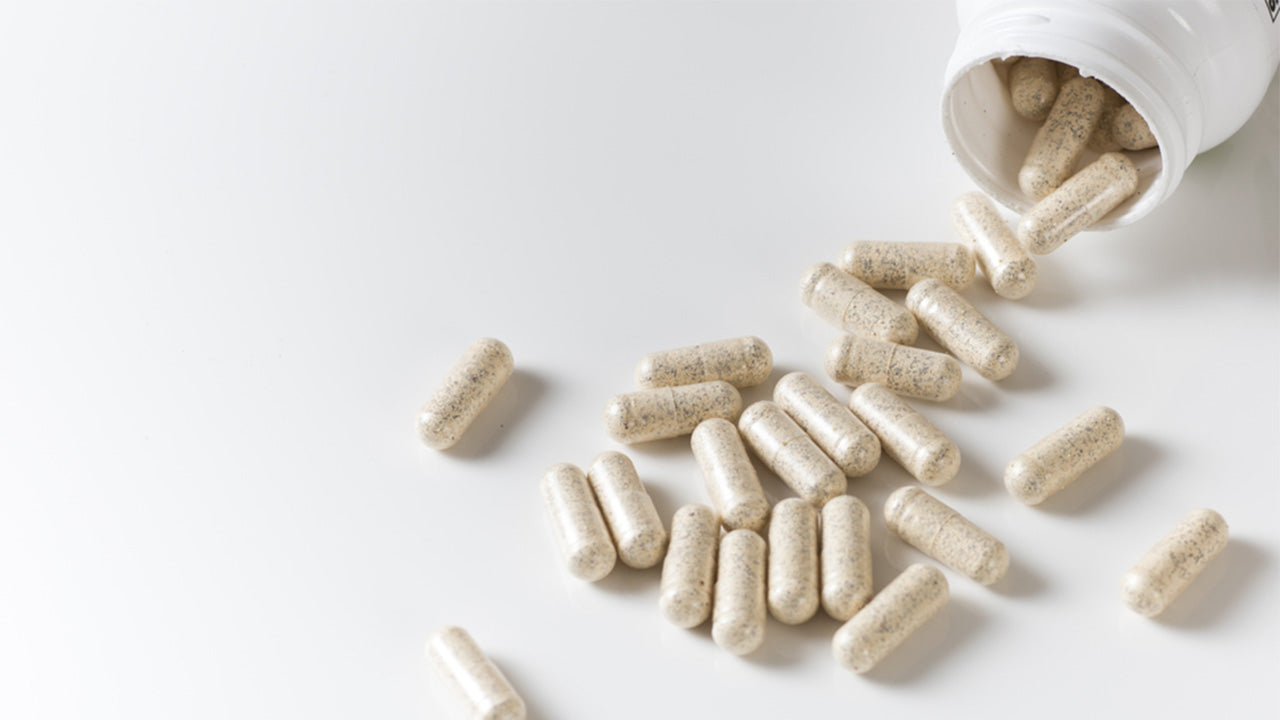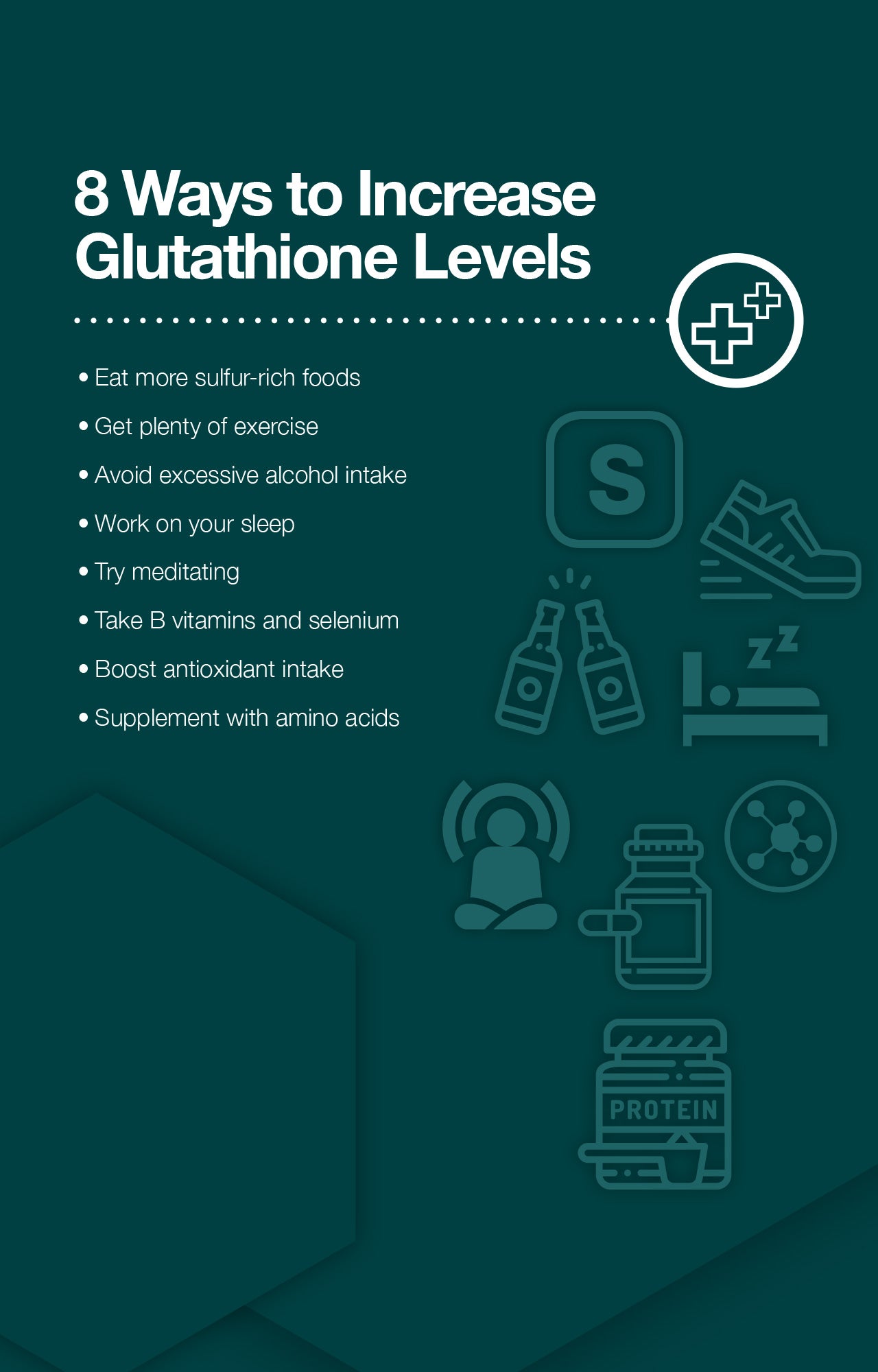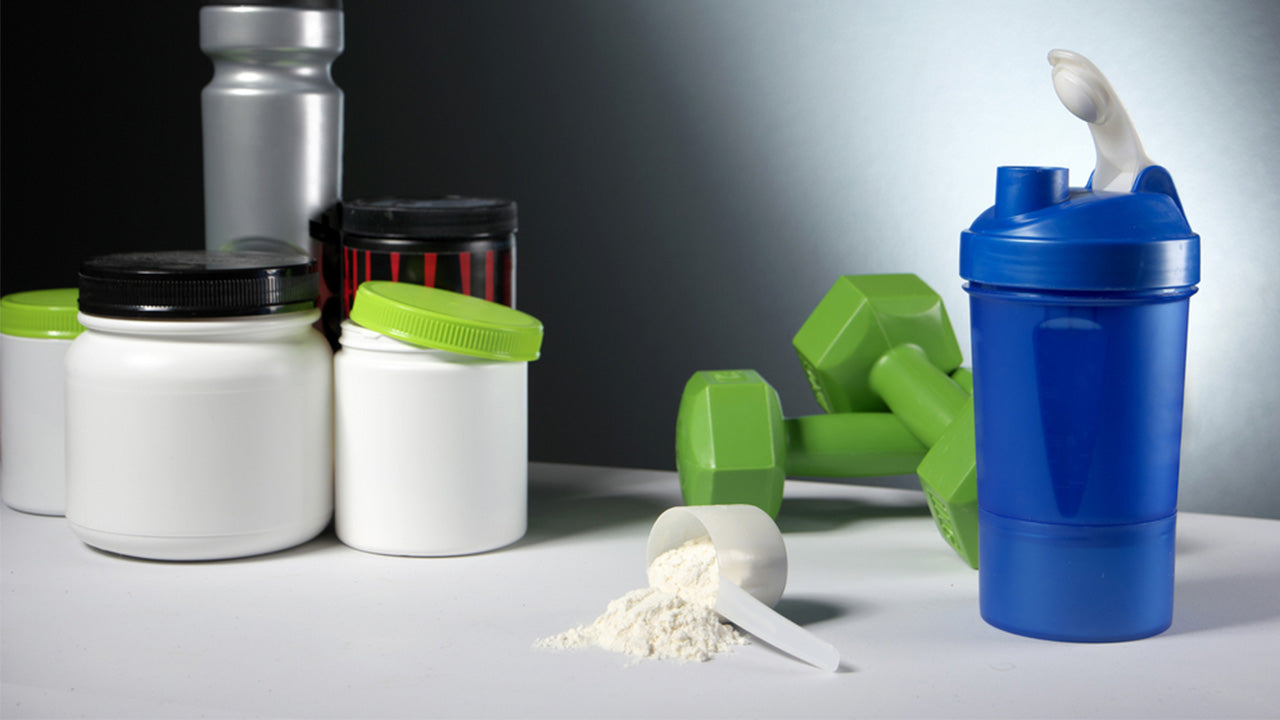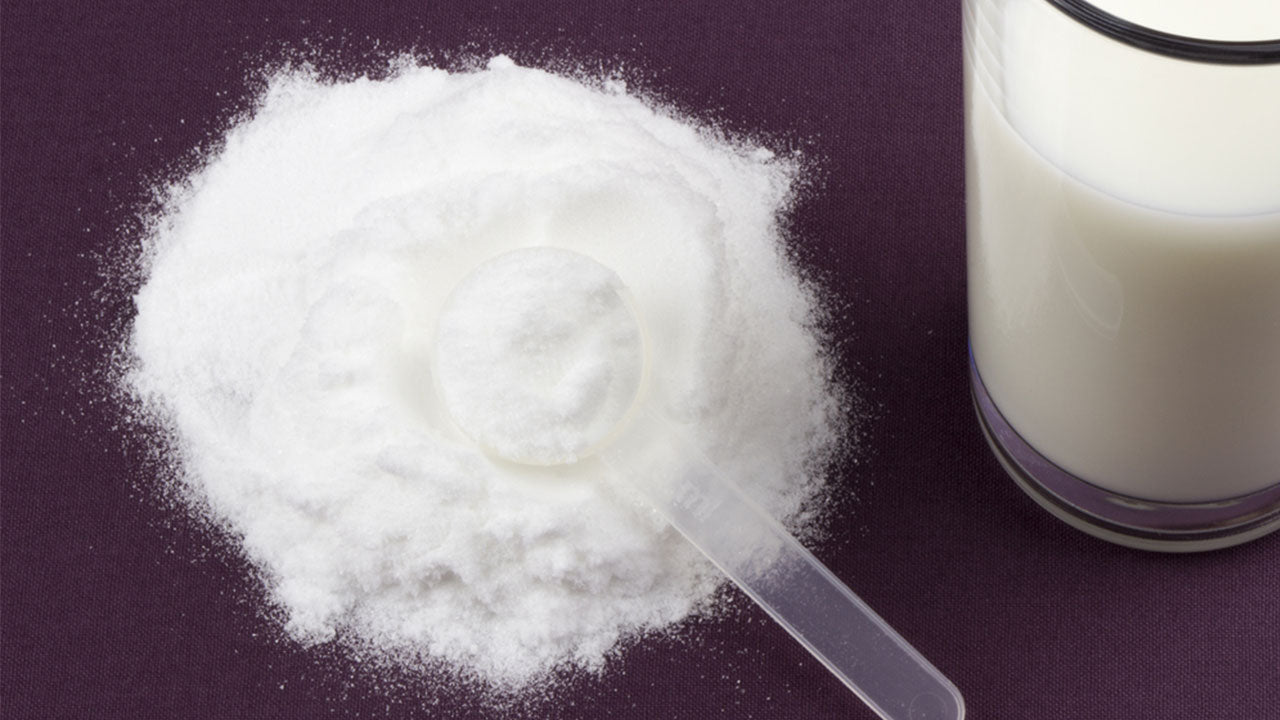Glutathione: What It Is, Why You Need It and How You Can Increase It
 By: by Amino Science
By: by Amino Science

Glutathione is one of the most important substances in the body, but if you're like most people, you've probably never even heard of it. So, in this article, we're going to talk about what glutathione is, why you need it, and what you can do to increase levels of glutathione and boost your health.
What Is Glutathione and Why Is it Important?
Composed of the amino acids cysteine, glutamic acid, and glycine, gamma-glutamyl-L-cysteinyl glycine, or glutathione (GSH), is a tripeptide thiol that's present in large concentrations in the cytosol and organelles of every cell. Glutathione plays such an important role in antioxidant defense that it's known as the body’s master antioxidant.
Master antioxidant?
Yes.
You see, not only is the role of glutathione in protecting the body from oxidative stress not to be overstated, but this powerful antioxidant can also regenerate other antioxidants, including vitamins C and E.
Glutathione also plays an important role in the detoxification process via its use as a cofactor. For example, it's required by peroxidase enzymes for the neutralization of harmful peroxides—including lipid peroxides, which form when lipids interact with free radicals.
In addition, it's used by transhydrogenases to stop the oxidation of DNA and proteins and by glutathione S-transferase (GST) to bind to toxins and xenobiotics.
But as important as neutralizing reactive oxygen species like free radicals, aiding detoxification, staving off oxidative damage, and regenerating other antioxidants are, they aren't the only functions glutathione has.
Glutathione also helps the body metabolize nutrients from the foods we eat, aids energy production, and assists in the regulation of cellular processes, including those that control:
- Gene expression
- Protein and DNA synthesis
- Cell proliferation and apoptosis
- Immune system response
And because it contains the sulfur-bearing amino acid cysteine, glutathione naturally binds to heavy metals like mercury (via glutathione S-transferase) and prevents them from entering the body's cells, where they can cause organ damage.

As you can see, the role glutathione plays in health and wellness is immense. However, just because the body can make its own glutathione doesn't mean it's always able to maintain adequate levels of this vital molecule.
On the contrary, a number of factors can affect glutathione levels and even lead to glutathione deficiency.
Glutathione Deficiency: What Causes It and What Does It Look Like?
Because glutathione is constantly interacting with free radicals and becoming oxidized, glutathione production never stops. During this process, glutathione transforms into glutathione disulfide, or oxidized glutathione (GSSG), and is regenerated—with the help of an energy source like glucose—by the enzyme glutathione reductase (GR).
When the body is healthy, this glutathione synthesis is carried out smoothly. However, genetic mutations and modern ills like poor diet, chronic stress, and exposure to toxins can affect the body's ability to manufacture adequate levels of glutathione and lead to glutathione deficiency.
With all the health benefits associated with glutathione, it makes sense that a deficiency in this important antioxidant would be associated with a number of negative side effects.
And it is.
In fact, glutathione deficiency has been linked to a number of health issues, including:
- Alzheimer's disease
- Parkinson's disease
- Cystic fibrosis
- Diabetes
- Heart disease
- Liver disease
- Cataracts
- Autism spectrum disorders
- HIV
However, the good news is that there are several strategies that can help you increase your glutathione levels.

8 Ways to Increase Glutathione Levels
Even if you don't have a genetic mutation that compromises your body's ability to manufacture adequate levels of glutathione, life in the modern world means that most of us are probably suffering from glutathione deficiency.
But boosting glutathione may be as simple as following these seven guidelines.
1. Eat More Sulfur-Rich Foods
As mentioned, glutathione contains the sulfur-bearing amino acid cysteine. By eating more foods rich in sulfur, levels of this important amino acid can be increased, thus aiding glutathione synthesis.
Sulfur-rich foods include:
- Garlic
- Onions
- Broccoli
- Cauliflower
- Kale
- Collard greens
- Cabbage
- Brussels sprouts
- Arugula
2. Get Plenty of Exercise
We all know exercise is good for us. After all, it strengthens muscles and bones, helps prevent heart disease and diabetes, and even elevates mood. But did you know it can also boost glutathione levels?
In fact, several studies have found a link between regular exercise and glutathione production, including a study published in the European Journal of Cardiovascular Prevention and Rehabilitation, which found that both aerobic exercise and resistance training have significant impacts on glutathione metabolism.
And the most noteworthy effects? Those are seen with a combination of the two.
3. Avoid Excessive Alcohol Intake
While alcohol consumption is perfectly fine, and even healthy, in moderation, chronic alcohol abuse is associated with increased oxidation and decreased glutathione levels.
However, a study published in the journal Nutrition found that drinking 500 milliliters of alcohol-free beer a day actually results in increased levels of glutathione.
How big an increase? A whopping 29%!
4. Work on Your Sleep
We mentioned earlier that chronic stress is linked to decreases in glutathione. One of the most important ways to reduce stress is getting plenty of sleep. However, according to the American Sleep Association, approximately a third of adults in the United States deal with intermittent insomnia while 1 in 10 suffer with chronic sleep loss.
This is unfortunate, as studies have found that poor sleep is itself a form of stress and can lead to decreases in glutathione levels and oxidative damage.
So if you're having trouble sleeping or just don't feel refreshed when you wake up to start your day, be sure to speak with your health care provider about steps you can take to improve your sleep.
5. Try Meditating
We've all heard about the benefits of meditation for stress and mood. But did you know that meditation can also help boost your glutathione levels?
In fact, multiple studies have documented a link between meditation and increased glutathione.
For example, a study published in the Journal of Alternative and Complementary Medicine found that a regular program of meditation combined with yoga can increase levels of glutathione by an astonishing 41%.
And a study published in the Journal of Psychosomatic Research found that meditation increases glutathione levels by 20%.
6. Take B Vitamins and Selenium
Folate, vitamin B6, and vitamin B12 are all required for the conversion of homocysteine into the sulfur-containing amino acid methionine.
Why is this important?
As the only other sulfur-containing amino acid, methionine can be used by the body to make cysteine. And the folate, vitamin B6, and vitamin B12 involved in converting homocysteine into methionine? All three of these vitamins are also required for glutathione synthesis.
Food sources of folate, vitamin B6, and vitamin B12 include:
- Poultry
- Fish
- Eggs
- Dairy products
- Broccoli
- Spinach
- Peanuts
- Soybeans
- Chickpeas
Similarly, the mineral selenium acts as a cofactor for glutathione and helps regulate the activity of glutathione peroxidase. Good sources of selenium include:
- Brazil nuts
- Meat
- Poultry
- Eggs
- Cottage cheese
- Spinach
- Cashews
- Sunflower seeds
- Oats
7. Boost Antioxidant Intake
As mentioned earlier, glutathione has the ability to regenerate other antioxidants. But other antioxidants can help regenerate glutathione levels too. According to research, it appears they do this in two ways: by scavenging free radicals before glutathione has to and by assisting in glutathione regeneration.
A clinical trial published in the American Journal of Clinical Nutrition found that just 500 milligrams of vitamin C a day leads to an almost 50% increase in levels of red blood cell glutathione.
Likewise, a clinical trial published in the journal Diabetes Care found that diabetic children supplemented with 100 International Units of vitamin E daily experienced significant increases in glutathione along with substantial decreases in lipid peroxidation.
In addition, a clinical trial published in the journal Redox Report noted that the antioxidant alpha-lipoic acid has the ability to regenerate other antioxidants, including vitamin E, vitamin C, and glutathione.
8. Supplement with Amino Acids
We've already noted that glutathione is made up of three amino acids: cysteine, glutamic acid, and glycine. Therefore, it makes sense that maintaining an adequate supply of these amino acids will help ensure stable levels of glutathione.
This can be accomplished through diet and by supplementing with a balanced formula of amino acids. Look no further than Life, proven to enhance physical function and muscle strength, improve blood lipid profiles, and support cardiovascular health.
Good food sources of cysteine, glutamic acid, and glycine include:
- Meat
- Poultry
- Fish
- Dairy products
- Whole grains
- Whey protein
Levels of cysteine can also be increased by supplementing with the cysteine precursor N-acetylcysteine (NAC). If this term seems familiar, it's probably because NAC is widely used in hospitals for the prevention of liver damage due to acetaminophen overdose.
N-acetylcysteine is such a potent glutathione precursor that it's even listed in the World Health Organization (WHO) Model List of Essential Medicines for use as an antidote in cases of poisoning.
Boost Your Health with Glutathione
Glutathione is a truly remarkable substance with a long list of health benefits. What's more, there's even evidence to suggest that increasing levels of glutathione may lead to greater lifespan.
So if you're suffering from risk factors that increase your chances of compromised glutathione production, or even if you just live in the modern world, don't forget this important molecule. By instituting the eight simple tips listed in this article, you can help boost levels of the aptly named master antioxidant—and your health.


Up to 25% off Amino
Shop NowTAGS: supplements
Join the Community
Comments (0)
Most Craveable Recipes




 833-264-6620
833-264-6620



















